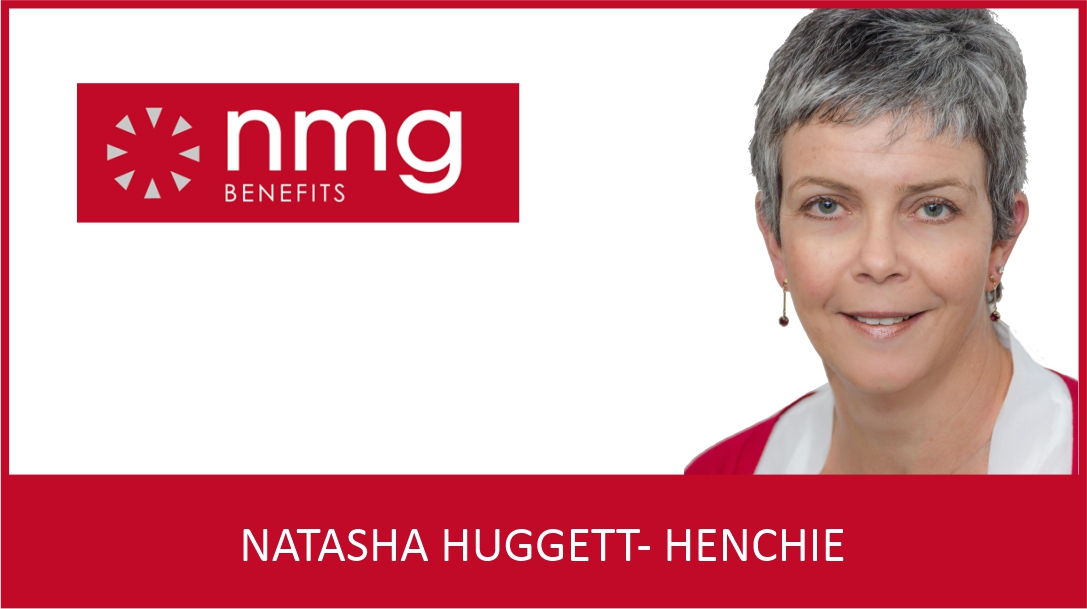Natasha Huggett-Henchie, Consulting Actuary at NMG Benefits
For many women, the path from receiving a first salary to securing a comfortable retirement can feel like a long uphill journey. Factors like the gender pay gap, single parenthood and extended family responsibilities, and potential career breaks due to motherhood, compound how difficult it can be to save and invest for future financial stability.
Natasha Huggett-Henchie, Consulting Actuary at financial advisory firm NMG Benefits, says that seeing where you want to be at retirement age, and then being disciplined about what it will take to get there, are crucial. “Ideally, your very first pay cheque should also be the source of your very first saving contribution. The key is to make the commitment when you start working, so that you become accustomed to not even seeing the money that you are putting into your savings.”
Why is this early start so important? The answer is simple: compound growth. The first rand you invest can be the biggest by the time you retire. Setting up a debit order that moves 10% to 15% of every pay cheque into a secure retirement savings vehicle is a commitment that will stand you in good stead down the line.
Managing debt is another crucial step. Huggett-Henchie recommends paying off high-interest debt, such as student loans or credit cards, and then redirecting those monthly payments into your retirement fund. And then, there is the emergency fund every woman should have. Always having enough money set aside to cover at least three months’ living expenses provides a buffer against unexpected costs like urgent car or home repairs, or medical emergencies.
Insurance also plays a critical role in protecting your financial independence. While many South Africans hold multiple funeral policies, Huggett-Henchie cautions that this can be unnecessary and expensive. “There are more efficient ways to cover your immediate family, which can significantly reduce premiums,” she explains. Further, income protection and disability cover guard against the risk of being unable to earn an income due to temporary or permanent illness or disability. And again, the sooner you start, the better off you will be. “The younger you are when you take out this kind of cover, the less expensive it is – and you are protected against possible exclusions due to ill health if you apply later in life.”
As you progress, investing wisely is like packing the right supplies for the journey ahead. Unit trusts offer a good starting point, allowing for steady accumulation of wealth with manageable risk. The trick? Start small and increase contributions as your financial situation improves.
Huggett-Henchie also advises that women avoid delegating investment and financial decisions to their partners. Practical steps for being informed and involved include maintaining individual bank accounts alongside a joint household account, and discussing shared finances. Having an antenuptial contract with accrual is another key measure. This protects your personal assets and savings, especially in the event of divorce or financial challenges relating to self-owned businesses.
Throughout this process, working with a trusted financial adviser is like travelling with an experienced guide. A professional adviser can help you navigate savings, investments, insurance, and estate planning. Building a long-term relationship with an adviser ensures your financial roadmap is continuously optimised for your changing needs and life stages.
Finally, creating a legal will is a vital milestone on your journey. It ensures your estate is handled according to your wishes and provides certainty and protection for your loved ones.
The road to retirement is rarely smooth. It involves crossing bridges, navigating detours and, occasionally, repacking your suitcase to lighten the load. But, setting a clear course early, saving every month, and seeking expert guidance, women can steadily advance towards being able to enjoy a secure and dignified retirement, say Huggett-Henchie
ENDS

























































































